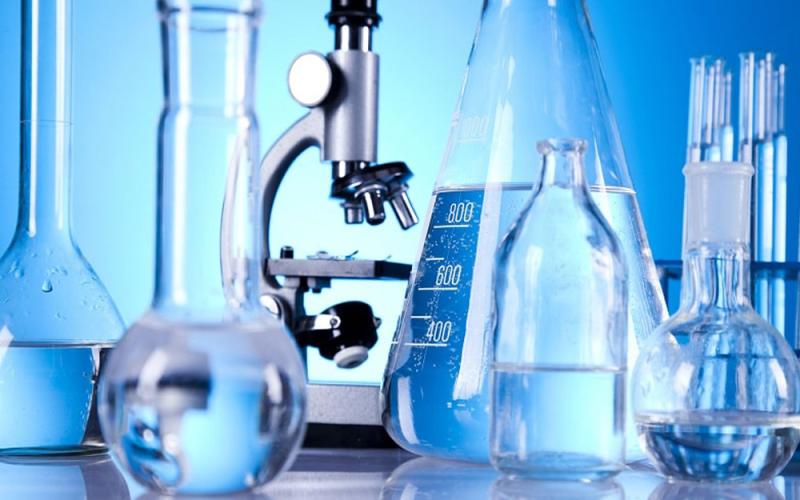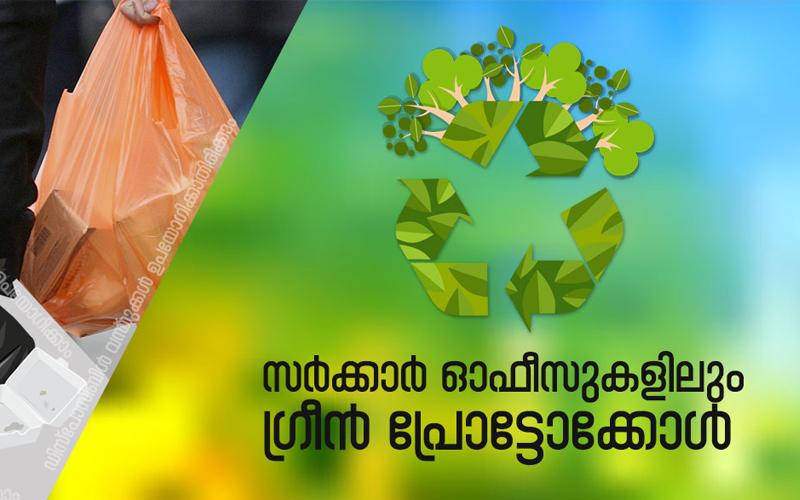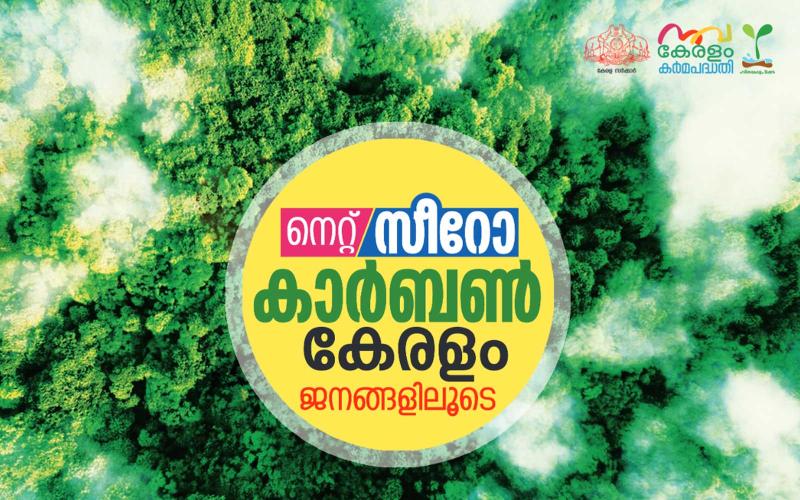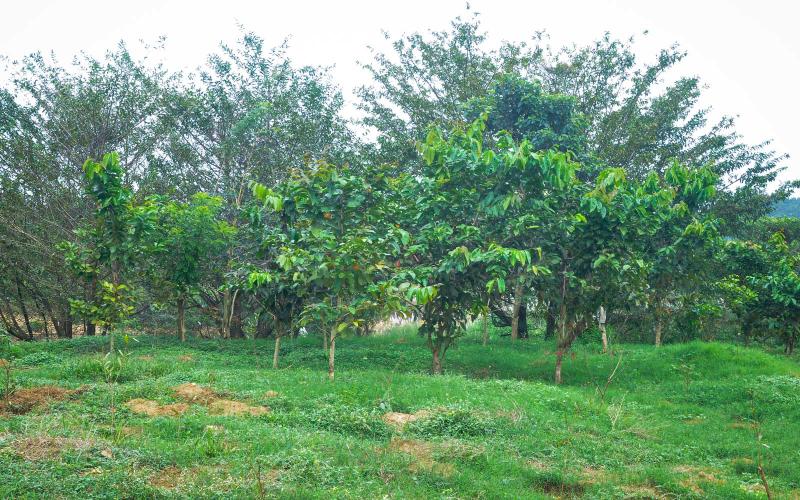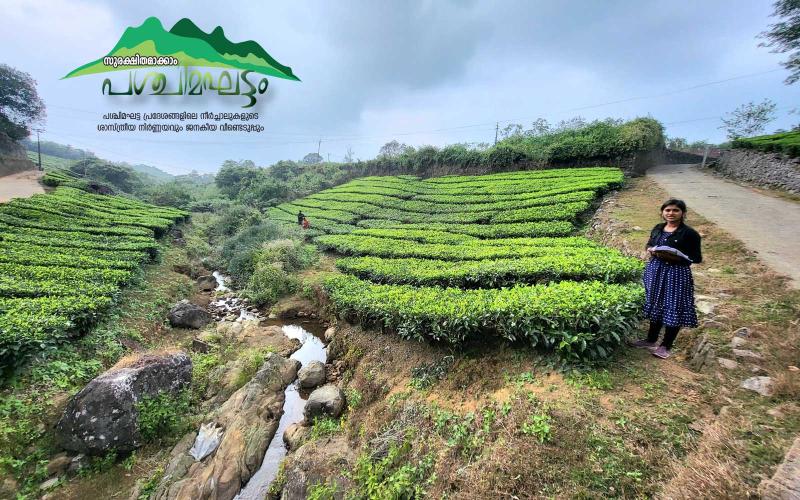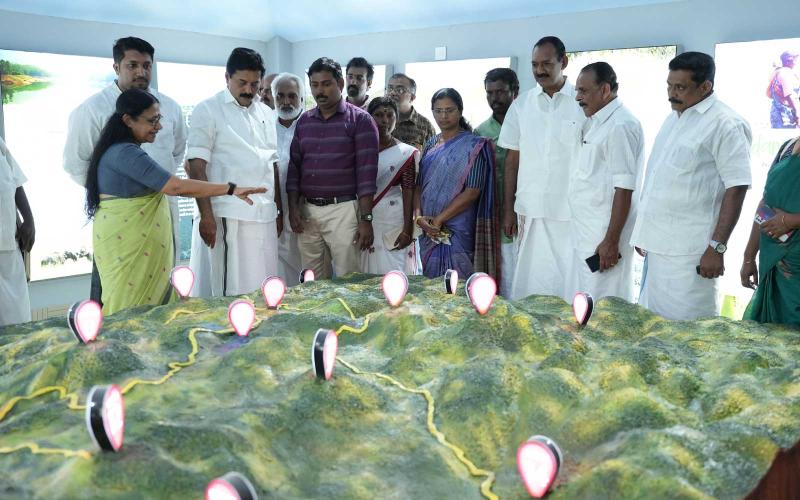In 2018, our state witnessed an unprecedented flood. Most of the areas were submerged in that flood and all the drinking water sources in those areas were submerged. This has resulted in massive water pollution. In our state more than 60% families depend on wells for drinking water. In our densely populated state, majority of people are concerned about the quality of well water. The flood intensified this concern. Alleviating their concerns was very important. Water quality should be checked and if there are problems, necessary solutions should be suggested and implemented to ensure quality. But the systems for such extensive water testing are totally inadequate in our state. And the ones that are expensive. Therefore, before going to those labs, it would be appropriate to have primary water quality testing labs locally, and it was suggested in the Haritha Keralam Mission meeting and was decided to establish primary water quality testing labs in one higher secondary school in all local self-government bodies.
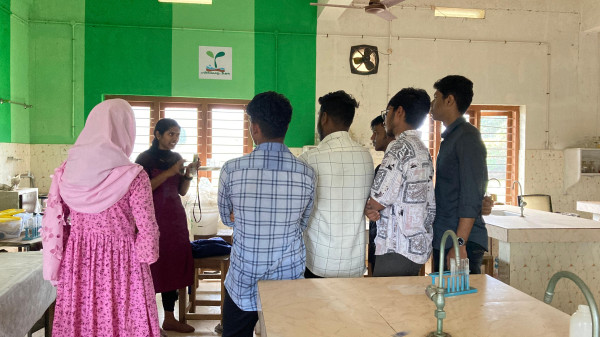
Various meetings were organized with the experts in the field of Health Department, Analytical Lab, Ground Water Department, Water Authority etc. regarding what things can be checked in such labs and what methods can be adopted. Based on the decisions of the joint meetings of these experts, a methodology was developed for various activities such as components to be tested, method of testing. A handbook, brochure and tutorial video were then prepared for these activities. Analytical lab authorities certified that the teachers of higher secondary chemistry department can conduct tests and giving results in these labs and accordingly the education department gave necessary instructions.
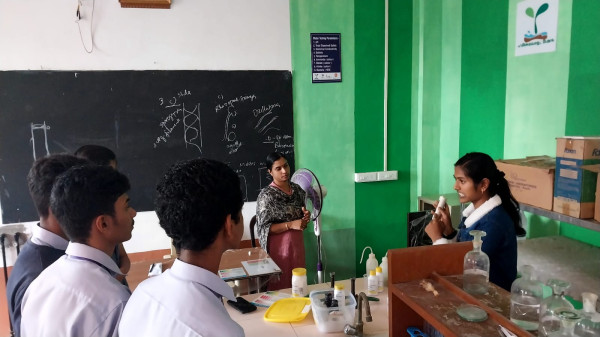
As part of setting up these labs, in the first phase 18 labs were set up with the funds of Haritha Keralam Mission. The work of setting up the labs has started by utilizing the M.L.A. Regional Development Fund, Local Self-Government Fund and RKI (Rebuild Kerala Initiative) Fund. Of these, 207 labs are now operational (as of May 2024) and the remaining are under completion. The education department also gave necessary instructions to the schools.
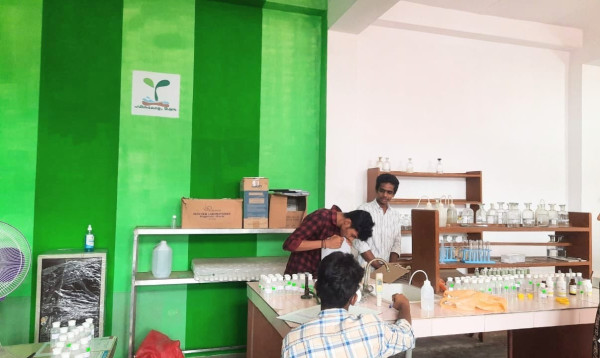
A software was developed with the help of IIITMK (now Digital University) to record water test results. From this, the people can provide the test results along with solutions to the problems found. Also, through this software, the local self-government bodies and the health department can get the necessary information about the areas where more problems are seen. A teacher and 5 children of the chemistry section of each school, where the lab was set up, have been given practical training under the leadership of the Haritha Keralam Mission, using the previously prepared tutorial video and with the support of experts in the field.
